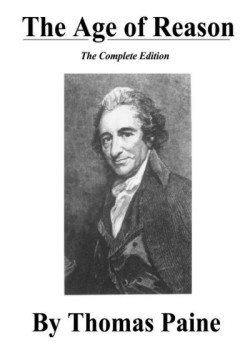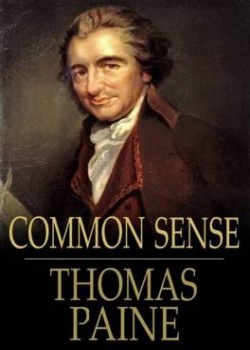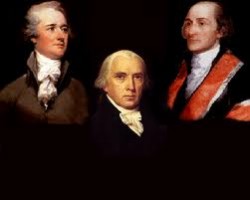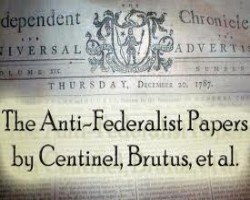HISTORY OF THE COLONIES
CHAPTER XIV
NORTH AND SOUTH CAROLINA
§ 128. We next come to the consideration of the history of the political organization of the Carolinas. That level region, which stretches from the 36th degree of north latitude to Cape Florida, afforded an ample theater for the early struggles of the three great European powers, Spain, France, and England, to maintain or acquire an exclusive sovereignty. Various settlements were made under the auspices of each of the rival powers, and a common fate seemed for a while to attend them all. In March, 1662 [April, 1663,] Charles the Second made a grant to Lord Clarendon and others of the territory lying on the Atlantic ocean, and extending from the north end of the island, called Hope island, in the South Virginian seas, and within 36 degrees of north latitude; and to the west as far as the South seas; and so respectively as far as the river Mathias upon the coast of Florida, and within 31 degrees of north latitude; and so west in a direct line to the South seas; and erected it into a province, by the name of Carolina, to be holden as of the manor of East-Greenwich in Kent, in free and common soccage, and not in capite, or by knight service, subject immediately to the crown, as a dependency, for ever.
§129. The grantees were created absolute Lords Proprietaries, saving the faith, allegiance, and supreme dominion of the crown; and invested with as ample rights and jurisdictions, as the Bishop of Durham possessed in his palatine diocese. The charter seems to have been copied from that of Maryland, and resembles it in many of its provisions. It authorized the proprietaries to enact laws with the assent of the freemen of the colony, or their delegates; to erect courts of judicature; to appoint civil officers; to grant titles of honour; to erect forts; to make war, and in cases of necessity to exercise martial law; to build harbours; to make ports; to erect manors; and to enjoy customs and subsidies imposed with the consent of the freemen. And it further authorized the proprietaries to grant indulgences and dispensations in religious affairs, so that persons might not be molested for differences in speculative opinion with respect to religion, avowedly for the purpose of tolerating non-conformity to the Church of England. It further required, that all laws should "be consonant to reason, and as near as may be conveniently, agreeable to the laws and customs of this our kingdom of England." And it declared, that the inhabitants and their children, born in the province, should be denizens of England, and entitled to all the privileges and immunities of British born subjects.
§ 130. The proprietaries immediately took measures for the settlement of the province; and at the desire of the New-England settlers within it, (whose disposition to emigration is with Chalmers a constant theme of reproach,) published proposals, forming a basis of government. It was declared, that there should be a governor chosen by the proprietaries from thirteen persons named by the colonists; and a general assembly, composed of the governor, council, and representatives of the people, who should have authority to make laws not contrary to those of England, which should remain in force until disapproved of by the proprietaries. Perfect freedom of religion was also promised; and a hundred acres of land offered, at a half penny an acre, to every settler within five years.
§ 131. In 1665, the proprietaries obtained from Charles the Second a second charter, with an enlargement of boundaries. It recited the grant of the former charter, and declared the limits to extend north and eastward as far as the north end of Currituck river or inlet, upon a straight westerly line to Wyonoak creek, which lies within or about 36 degrees 30 minutes of north latitude; and so west in a direct line as far as the South seas; and south and westward as far as the degrees of 29 inclusive of northern latitude, and so west in a direct line as far as the South seas. It then proceeded to constitute the proprietaries absolute owners and lords of the province, saving the faith, allegiance, and sovereign dominion of the crown, to hold the same as of the manor of East-Greenwich in Kent, in free and common soccage, and not in capite, or by knight service; and to possess in the same all the royalties, jurisdictions, and privileges of the Bishop of Durham in his diocese. It also gave them power to make laws, with the assent of the freemen of the province, or their delegates, provided such laws were consonant with reason, and, as near as conveniently, may be agreeable to the laws and customs of the realm of England. It also provided, that the inhabitants and their children should be denizens and lieges of the kingdom of England, and reputed and held as the liege people born within the kingdom; and might inherit and purchase lands, and sell and bequeath the same; and should possess all the privileges and immunities of natural born subjects within the realm. Many other provisions were added, in substance like those in the former charter. Several detached settlements were made in Carolina, which were at first placed under distinct temporary governments; one was in Albemarle; another to the south of Cape Fear. Thus various independent and separate colonies were established, each of which had its own assembly, its own customs, and its own laws; a policy, which the proprietaries had afterwards occasion to regret, from its tendency to enfeeble and distract the province.
§ 132. In the year 1669, the proprietaries, dissatisfied with the systems already established within the province, signed a fundamental constitution for the government thereof, the object of which is declared to be, " that we may establish a government agreeable to the monarchy, of which Carolina is a part, that we may avoid making too numerous a democracy." This constitution was drawn up by the celebrated John Locke; and his memory has been often reproached with the illiberal character of some of the articles, the oppressive servitude of others, and the general disregard of some of those maxims of religious and political liberty, for which he has in his treatises of government and other writings contended with so much ability and success. Probably there were many circumstances attending this transaction, which are now unknown, and which might well have moderated the severity of the reproach, and furnished, if not a justification, at least some apology for this extraordinary instance of unwise and visionary legislation.
§ 133. It provided, that the oldest proprietary should be the palatine, and the next oldest should succeed him. Each of the proprietaries was to hold a high office. The rules of precedency were most exactly established. Two orders of hereditary nobility were instituted, with suitable estates, which were to descend with the dignity. The provincial legislature, dignified with the name of Parliament, was to be biennial, and to consist of the proprietaries or their deputies, of the nobility, and of representatives of the freeholders chosen in districts. They were all to meet in one apartment, (like the ancient Scottish parliament,) and enjoy an equal vote. No business, however, was to be proposed, until it had been debated in the grand council, (which was to consist of the proprietaries and forty-two counsellors,) whose duty it was to prepare bills. No act was of force longer than until the next biennial meeting of the parliament, unless ratified by the palatine and a quorum of the proprietaries. All the laws were to become void at the end of a century, without any formal repeal. The Church of England (which was declared to be the only true and orthodox religion) was alone to be allowed a public maintenance by parliament. But every congregation might tax its own members for the support of its own minister. Every man of seventeen years of age was to declare himself of some church or religious profession, and to be recorded as such; otherwise he was not to have any benefit of the laws. And no man was to be permitted to be a freeman of Carolina, or have any estate or habitation, who did not acknowledge a God, and that God is to be publicly worshipped. In other respects there was a guaranty of religious freedom. There was to be a public registry of all deeds and conveyances of lands, and of marriages and births. Every freeman was to have "absolute power and authority over his negro slaves, of what opinion or religion soever." No civil or criminal cause was to be tried but by a jury of the peers of the party; but the verdict of a majority was binding. With a view to prevent unnecessary litigation, it was (with a simplicity, which at this time may excite a smile) provided, that "it shall be a base and vile thing to plead for money or reward; "and that since multiplicity of comments, as well as of laws, have great inconveniences, and serve only to obscure and perplex, all manner of comments and expositions on any part of these fundamental constitutions, or on any part of the common, or statute law of Carolina, are absolutely prohibited."
§ 134. Such was the substance of this celebrated constitution. It is easy to perceive, that it was ill adapted to the feelings, the wants, and the opinions of the colonists. The introduction of it, therefore, was resisted by the people, as much as it could be; and indeed, in some respects, it was found impracticable. Public dissatisfaction daily increased; and after a few years' experience of its ill arrangements, and its mischievous tendency, the proprietaries, upon the application of the people, (in 1693,) abrogated the constitution, and restored the ancient form of government. Thus perished the labours of Mr. Locke; and thus perished a system, under the administration of which, it has been remarked, the Carolinians had not known one day of real enjoyment, and that introduced evils and disorders, which ended only with the dissolution of the proprietary government. Perhaps in the annals of the world there is not to be found a more wholesome lesson of the utter folly of all efforts to establish forms of governments upon mere theory; and of the dangers of legislation without consulting the habits, manners, feelings, and opinions of the people, upon which they are to operate.
§ 135. After James the Second came to the throne, the same general course was adopted of filing a quo warranto against the proprietaries, as had been successful in respect to other colonies. The proprietaries, with a view to elude the storm, prudently offered to surrender their charter, and thereby gained time. Before any thing definitive took place, the revolution of 1688 occurred, which put an end to the hostile proceedings. In April, 1698, the proprietaries made another system of fundamental constitutions, which embraced many of those propounded in the first, and, indeed, was manifestly a mere amendment of them.
§ 136. These constitutions (for experience does not seem to have imparted more wisdom to the proprietaries on this subject) contained the most objectionable features of the system of government, and hereditary nobility of the former constitutions, and shared a common fate. They were never generally assented to by the people of the colony, or by their representatives, as a body of fundamental laws. Hewatt says, that none of these systems ever obtained "the force of fundamental and unalterable laws in the colony.' What regulations the people found applicable, they adopted at the request of their governors; but observed these on account of their own propriety and necessity, rather than as a system of laws imposed on them by British legislators."
§ 137. There was at this period a space of three hundred miles between the Southern and Northern settlements of Carolina; and though the whole province was owned by the same proprietaries, the legislation of the two great settlements had been hitherto conducted by separate and distinct assemblies, sometimes under the same governor, and sometimes under different governors. The legislatures continued to remain distinct down to the period, when a final surrender of the proprietary charter was made to the crown in 1729. The respective territories were designated by the name of North Carolina and South Carolina, and the laws of each obtained a like appellation. Cape Fear seems to have been commonly deemed, in the commissions of the governor, the boundary between the two colonies.
§ 138. By the surrender of the charter, the whole government of the territory was vested in the crown; (it had been in fact exercised by the crown ever since the overthrow of the proprietary government in 1720;) and henceforward it became a royal province; and was governed by commission under a form of government substantially like that established in the other royal provinces. This change of government was very acceptable to the people, and gave a new impulse to their industry and enterprise. At a little later period [1732], for the convenience of the inhabitants, the province was divided; and the divisions were distinguished by the names of North Carolina and South Carolina.
§ 139. The form of government conferred on Carolina, when it became a royal province, was in substance this. It consisted of a governor and council appointed by the crown, and an assembly chosen by the people, and these three branches constituted the legislature. The governor convened, prorogued, and dissolved the legislature, and had a negative upon the laws, and exercised the executive authority. He possessed also the powers of the court of chancery, of the admiralty, of supreme ordinary, and of appointing magistrates and militia officers. All laws were subject to the royal approbation or dissent; but were in the mean time in full force.
§ 140. On examining the statutes of South Carolina, a close adherence to the general policy of the English laws is apparent. As early as the year 1712, a large body of the English statutes were, by express legislation, adopted as part of its own code; and all English statutes respecting allegiance, all the test and supremacy acts, and all acts declaring the rights and liberties of the subjects, or securing the same, were also declared to be in force in the province. All and every part of the common law, not altered by these acts, or inconsistent with the constitutions, customs, and laws of the province, was also adopted as part of its jurisprudence. An exception was made of ancient abolished tenures, and of ecclesiastical matters inconsistent with the then church establishment in the province. There was also a saving of the liberty of conscience, which was allowed to be enjoyed by the charter from the crown, and the laws of the Province. This liberty of conscience did not amount to a right to deny the Trinity. The Church of England had been previously established in the province [in 1704] and all members of the assembly were required to be of that persuasion. Fortunately, Queen Anne annulled these obnoxious laws; and though the Church of England was established, dissenters obtained a toleration, and the law respecting the religious qualification of assembly-men was shortly afterwards repealed.
§ 141. The law of descents of intestate real estates, of wills, and of uses, existing in England, thus seem to have acquired a permanent foundation in the colony, and remained undisturbed, until after the period of the American Revolution. As in the other colonies, the registration of conveyances of lands was early provided for, in order to suppress fraudulent grants.
§ 142. In respect to North Carolina, there was an early declaration of the legislature [1715] conformably to the charter, that the common law was, and should be in force in the colony. All statute laws for maintaining the royal prerogative and succession to the crown; and all such laws made for the establishment of the church, and laws made for the indulgence to Protestant dissenters; and all laws providing for the privileges of the people, and security of trade; and all laws for the limitation of actions and for preventing vexatious suits, and for preventing immorality and fraud, and confirming inheritances and titles of land, were declared to be in force in the province. The policy thus avowed was not departed from down to the period of the American Revolution; and the laws of descents and the registration of conveyances in both the Carolinas was a silent result of their common origin and government.







The most important project on this website is "THE WORKS."
This is the place where you can read the words of the founding fathers and those who had a VERY BIG part in the founding of this country.
Not only do we have the Federalist and the Anti-Federalist Papers, but we also have other Constitutional Commentaries that were written shortly after the Constitution was ratified.